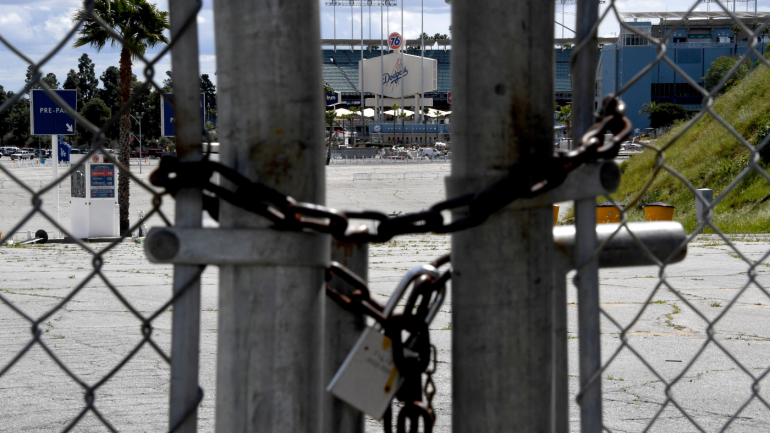
Major League Baseball's owners are expected to lock out the players this week, after the current Collective Bargaining Agreement expires at 11:59 p.m. ET on Dec. 1. The lockout, which will be MLB's first work stoppage since 1994-95, will remain in place until a new CBA can be agreed upon and then ratified by the owners and the players union.
Given that it's been nearly three decades since the last time the league shut down, you might wonder what exactly it means for the hot stove. Below, we've tried our best to answer five questions about the looming lockout and how it'll impact transactions.
1. Can free agents sign during the lockout?
Nope. You won't see Carlos Correa, Corey Seager, or any other notable free agent put pen to paper during the lockout. If they're a member of the MLB Players Association then they are not eligible to change teams during the work stoppage. Those players will have to wait until after the new CBA is ratified to sign; depending on when the CBA is agreed upon, that could force them to make quick decisions.
Thanks for signing up!
Keep an eye on your inbox.
Sorry!
There was an error processing your subscription.
2. What about Seiya Suzuki?
Suzuki is an outfielder with Nippon Professional Baseball's Hiroshima Toyo Carp. In addition to being the top international free agent available this winter, he's one of the top free agents available overall, ranking 15th on our top-50 list. In a normal offseason, MLB teams would have just 30 days after Suzuki was "posted" to reach an agreement with him; otherwise, he'd remain in Japan. This offseason, however, is expected to see Suzuki's 30-day window paused for as long as the work stoppage lasts, likely resulting in the process being stretched out beyond its normal tidiness.
3. How has free agency been impacted so far?
It's hard to say how much of the recent activity has been caused by the impending lockout, and how much of it is owed to the typical Thanksgiving rush to get deals done. As of Sunday, 10 of the CBS Sports' top-50 free agents had signed, including four of the top 25. The tip-top of the market had remained untouched, as none of the top nine free agents had agreed to contracts, but that may soon change. League sources told CBS Sports on Saturday that Kevin Gausman appeared to be nearing a decision, while Max Scherzer also appears interested in finding a home before the lockout. At minimum, the looming work stoppage ensures that the offseason will have two parts: this "pre" period, and then a meatier "post" portion once a new CBA is agreed to.
4. Can teams make trades?
Yes and no. You won't see deals involving players who are on the 40-player roster, or who are otherwise part of the union, but you could still see teams swap prospects. By and large, the minor leagues will be unaffected by the lockout because they are not members of (nor are they represented by) the MLB Players Association.
5. How long will the lockout last?
This is the big, unanswerable question, but insiders who have spoken to CBS Sports have suggested it'll be timed in months, not days or weeks. That doesn't mean spring training or the regular season will be compromised, necessarily; it does mean that the bulk of free agency and trades might be funneled into a small, hectic window. Do note that the offseason could have carried on like normal without a CBA; it's the owners' decision to lock out the players that will bring everything to a stop.
MLB hot stove: How baseball's impending lockout is impacting free agency - CBS sports.com
Read More

No comments:
Post a Comment